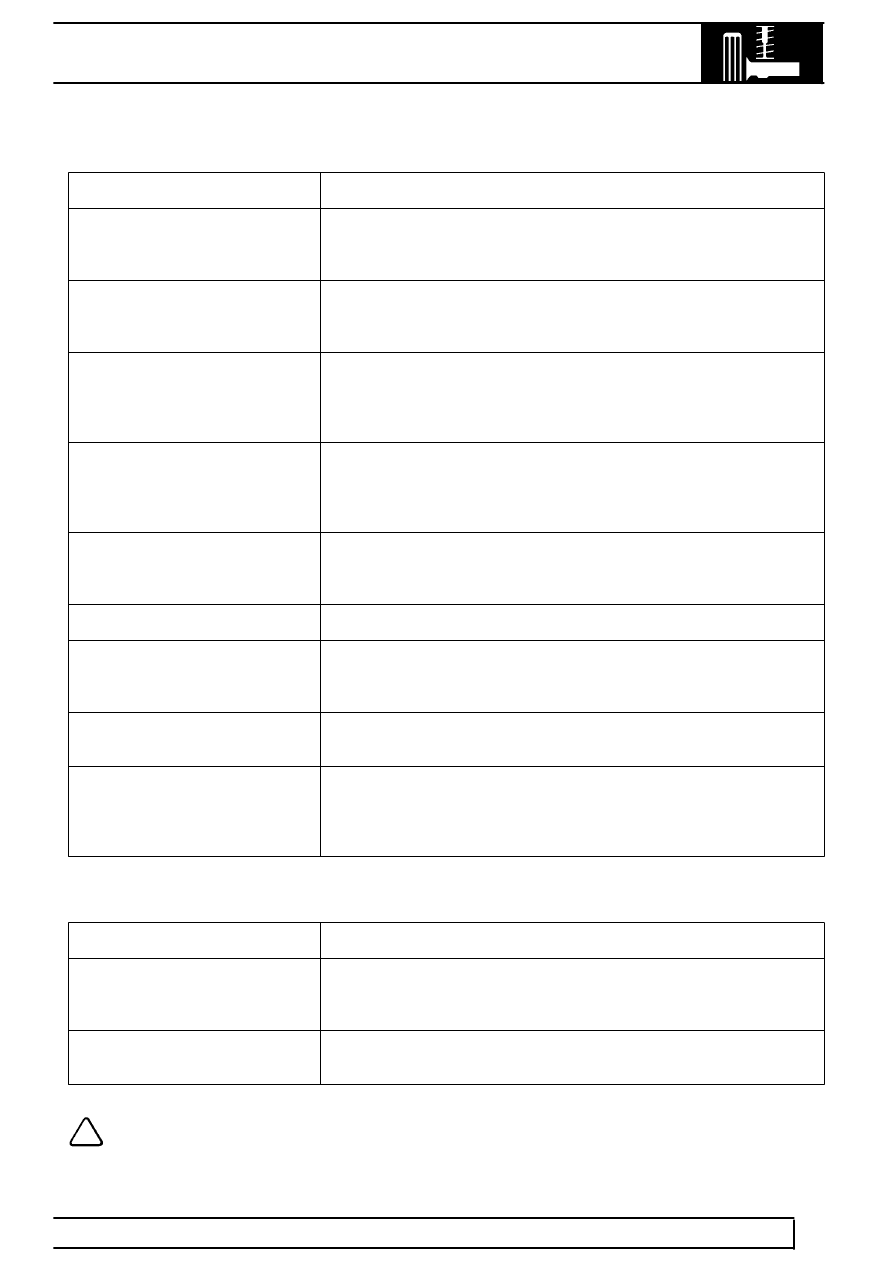Range Rover P38 - Front Suspension - Electronic Air Suspension - Fault Diagnosis - Page 909

ELECTRONIC AIR SUSPENSION
3
FAULT DIAGNOSIS
Symptom - Air Suspension System Faulty Or Inoperative.
POSSIBLE CAUSE
REMEDY
1. Blown air suspension system
fuse.
1. Check and renew fuse F44.
2. Blown fuse covering dashboard
’height control’ or ’inhibit’
switch.
2. Check and renew fuse F17.
3. Faulty ’height control’ switch;
could result in vehicle height
remaining at last setting until
ignition switched off.
3. Refer to TestBook to confirm fault and renew ’height control’
switch.
See ELECTRICAL, Repair.
4. Faulty ’inhibit’ switch; could
result in vehicle not operating
automatically between
standard and low modes.
4. Refer to TestBook to confirm fault and renew ’inhibit’ switch.
See
ELECTRICAL, Repair.
5. Compressor inoperative; no air
pressure due to loose or
disconnected multi-plug.
5. Check and reconnect compressor multi-plug.
6. Blown compressor maxi fuse.
6. Check and renew maxi fuse 2.
7. Faulty compressor relay,
resulting in compressor running
continuously.
7. Renew relay RL20.
8. Loss of air pressure in the air
system.
8. Check air system components for faults and air harness for leaks.
See Repair.
9. Faulty delay relay. If the delay
relay fails with a closed circuit
the system will be powered,
resulting in a flat battery.
9. Renew relay AMR3284.
Symptom - Vehicle Leaning Side To Side Or Front To Rear With Air Suspension System Operative.
POSSIBLE CAUSE
REMEDY
1. Faulty height sensor.
1. Refer to TestBook to locate faulty height sensor. Renew height
sensor and re-calibrate air suspension system. Refer to TestBook .
2. Incorrect height sensor
calibration.
2. Re-calibrate air suspension system. Refer to TestBook .
NOTE: Critical warning messages relating to the air suspension system are displayed on the
message centre, should a fault occur.
